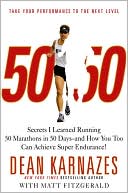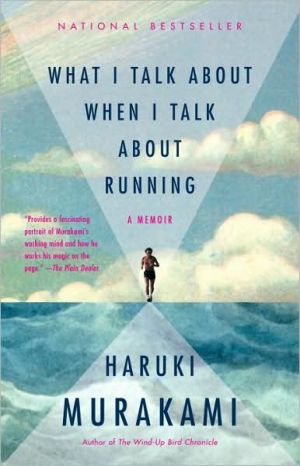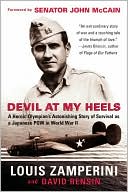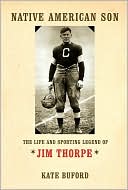Barefoot Runner: The Life of Marathon Champion Abebe Bikila
“It’s an astonishing sight, I must say: the Ethiopian, Abebe Bikila, is racing barefoot.”—BBC Radio Olympic commentary, Rome, 1960\ Abebe Bikila was the first black African to win an Olympic gold medal. He won the marathon running barefoot in Rome in 1960 and won again wearing shoes in Tokyo in 1964, becoming the first person to win the most grueling of all human contests twice.\ Born into bitter poverty in rural Ethiopia in 1932, at sixteen Bikila joined the Imperial Guard of the Emperor...
Search in google:
First biography of the world's greatest runner-vivid retelling of Bikila's triumph over adversity. Publishers Weekly Abebe Bikila, a soldier in the imperial guard of Ethiopia's Haile Selassie, wasn't just the first African athlete to win a gold medal in Olympic competition. He won the marathon in the 1960 games while running barefoot, then defied odds to win again in Tokyo four years later. Between the two victories, however, he nearly faced execution after being used as a pawn by leaders of an unsuccessful coup against Selassie. His life has all the makings of a compelling story and despite being billed as a biography, Rambali's account takes a highly novelistic approach, imagining the inner thoughts of Bikila (1932 1973) and other figures in every scene. The technique is suspect, given the failure to cite documentation for such speculation when all the major players have been dead for decades. Furthermore, key historical details are inexplicably bypassed; when a German philanthropist donates hundreds of running shoes to Ethiopia's athletic program, for example, the name of the shoe company is never mentioned. Rambali also falls short as a dramatist, awkwardly juxtaposing Bikila's career against the personal turmoil of his trainer, Onni Niskanen, and the declining years of Selassie's reign. (June)Copyright 2007 Reed Business Information
\ Publishers WeeklyAbebe Bikila, a soldier in the imperial guard of Ethiopia's Haile Selassie, wasn't just the first African athlete to win a gold medal in Olympic competition. He won the marathon in the 1960 games while running barefoot, then defied odds to win again in Tokyo four years later. Between the two victories, however, he nearly faced execution after being used as a pawn by leaders of an unsuccessful coup against Selassie. His life has all the makings of a compelling story—and despite being billed as a biography, Rambali's account takes a highly novelistic approach, imagining the inner thoughts of Bikila (1932–1973) and other figures in every scene. The technique is suspect, given the failure to cite documentation for such speculation when all the major players have been dead for decades. Furthermore, key historical details are inexplicably bypassed; when a German philanthropist donates hundreds of running shoes to Ethiopia's athletic program, for example, the name of the shoe company is never mentioned. Rambali also falls short as a dramatist, awkwardly juxtaposing Bikila's career against the personal turmoil of his trainer, Onni Niskanen, and the declining years of Selassie's reign. (June)\ Copyright 2007 Reed Business Information\ \ \ \ \ Library JournalThis is the first biography of Abebe Bikila (1932-73), the first black African to win an Olympic gold medal and the first man to win the Olympic marathon twice. Freelance writer and broadcaster Rambali (In the Cities and Jungles of Brazil) chronicles Bikila's life from his difficult but typical childhood in rural Ethiopia to his death at the age of 40. As a member of Ethiopia's Imperial Guard, Bikila caught the eye of physical trainer and Finnish expatriate Maj. Onni Niskanen, who trained him and watched over him. After winning the gold medal in Rome, Bikila became a national hero and a talisman for Ethiopia's enigmatic emperor, Haile Selassie. He won his second gold medal in Tokyo weeks after suffering acute appendicitis but failed in his attempt at a third in Mexico City in 1968. Soon after, a car accident left him as a paraplegic and his beloved emperor was overthrown. Poignantly written, this book is somewhat novelistic in its approach, but public libraries collecting the history of the sport may consider it.\ —Todd Spires\ \ \








